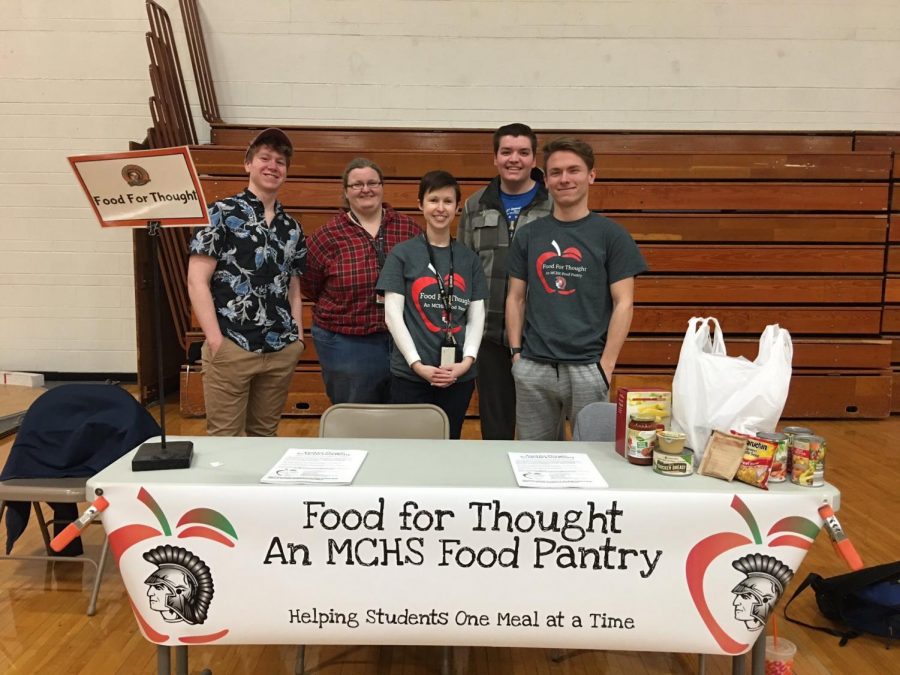Hidden homelessness
MCHS Raises Awareness and Support for Homeless Students
Photo Courtesy of Food For Thought Facebook page
Teachers Ashley Diedrich and Emma Theel promote the Food For Thought Program with some of their student members at the Freshmen Extravaganza in February.
February 27, 2019
In District 156, there are more than 1,000 students who call McHenry home. However, a portion of those students does not have a house to go home to.
When the term “homeless” comes to mind, often people think of people with ragged clothing begging for money along the sidewalks of crowded city streets. Yet, this stereotype is not a true representation of the reality of homelessness. Often times, homelessness stays hidden behind the scenes.
At MCHS, there currently are 33 students that qualify as homeless amongst the student population at both East and West Campus. Students are considered homeless if they have no permanent place of residence or are staying in another family’s home.
When a student is designated as homeless, certain acts and laws come into play to help provide a student an education, one of which is the McKinney Vento Act. This act provides students access to free or reduced lunches through funding from the state. This also allows students to have their school registration fees waived.
The second law that comes into play is Title I. Title I allows schools funding for their low-income students and helps provide them with their basic needs, such as education, school supplies, clothes, a winter coat, etc. If a student must move to a new district, their previous school will provide them with transportation to their new one every day by cab. By law, cannot discriminate against or turn away homeless students based on their housing status.
West Campus Principal Marsha Potthoff stressed the importance of embracing homeless students and helping them acclimate to their new environment.
“The main thing is having an attitude that you want them to feel welcomed here and not to feel as if they stand out or are a problem to us,” she said.
One of the ways MCHS supports its students is through clubs and activities. Food for Thought is one of them. The organization, which was founded in 2016, discreetly provides families guaranteed meals that will not perish to replace the meals children may miss from school over the weekend.
“I have volunteered in food pantries and I have really benefited from that because I saw how many people actually utilized that service,” said Social Worker Katie Murtaugh.
Maura Reid, another social worker at West, adds, “I do think [the need for unhoused students awareness] is something that isn’t talked about as much as maybe it should be.”
To provide more support and create awareness amongst teachers, Reid started a fundraiser amongst staff that allows them to wear jeans on Tuesdays for a small donation. The funds raised are used for materials (clothing, school supplies, etc.) for low-income or unhoused scholars.











